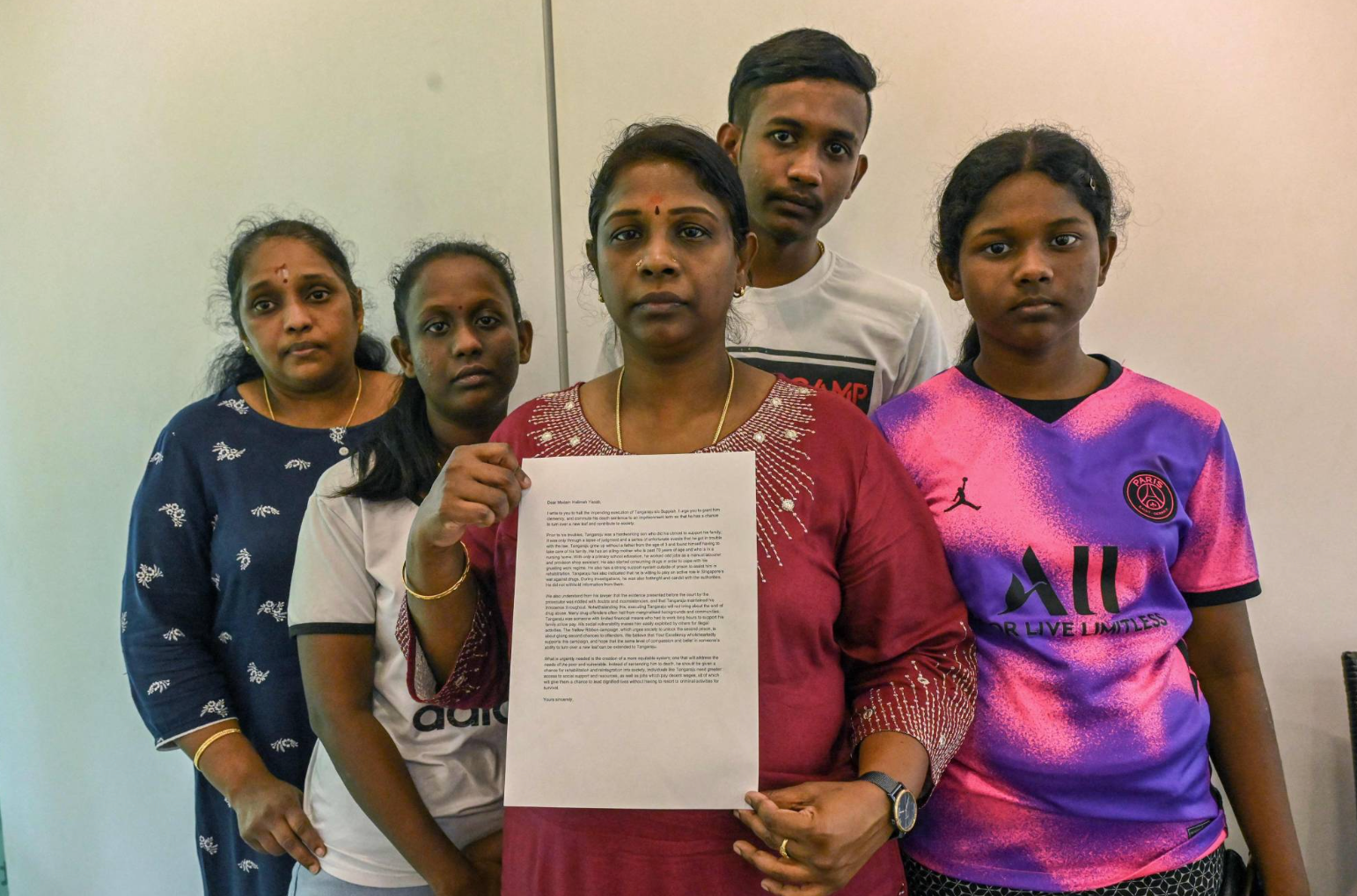Why Tangaraju Suppiah doesn’t deserve to die
I have long spoken up against the death penalty and its continued use around the world. In the coming days, Singapore is planning to carry out yet another execution, a case as egregious as previous ones I have followed. If the state gets its way, Tangaraju Suppiah will be hanged on Wednesday at Singapore’s Changi Prison, convicted under more than dubious circumstances for conspiracy to smuggle about one kilo of cannabis. In fact, Singapore may be about to kill an innocent man.
Tangaraju’s case is shocking on multiple levels. Singapore has a long and troubled history of executing drug offenders, following mandatory sentencing laws that proscribe the death penalty for certain threshold amounts of drugs. The country’s government has repeatedly claimed that its draconian laws serve as an effective deterrent of drug-related crime. However, Singaporean authorities have repeatedly failed to provide any tangible evidence for that assertion. Killing those at the lowest rungs of the illicit drug supply chain, often minorities living in poverty, is hardly effective in curbing an international trade worth hundreds of billions every year. Killing people for allegedly smuggling cannabis is particularly cruel and misguided, given that more countries are now introducing sensible drug policy by decriminalising and regulating both medicinal and recreational cannabis, using revenues to advance education, prevention, and harm reduction. From the vantage point of the Global Commission on Drug Policy, of which I am a member, Tangaraju’s execution will not make Singapore any safer than it already is, and it will do absolutely nothing to stop the flow of illicit drugs into the city state.
Equally, if not more disconcerting about this case is that Tangaraju was actually not anywhere near these drugs at the time of his arrest. This was largely a circumstantial case that relied on inferences. Investigators and prosecutors acted on the fact that his mobile numbers were stored on the actual drug traffickers’ phone, interpreting phone records and text messages as “proof” of his involvement. Tangaraju’s alleged co-conspirator – who was actually caught in possession of the drugs – pleaded guilty to a non-capital offence. The other three people connected to the case were “discharged not amounting to an acquittal” by the prosecution. Tangaraju himself has maintained his innocence from the very beginning of his ordeal.
In Singapore as in other countries, there is a high bar for criminal convictions, and the standard of proof required is to establish culpability “beyond a reasonable doubt.” Even setting aside my fundamental opposition to the death penalty and the grave injustice of killing people for non-violent drug offences, it appears to me that Tangaraju’s conviction didn’t meet that standard at all. Many observers have been shocked by how thin the evidence against him was and feel he should never have been charged, let alone convicted, to begin with. I agree.
No matter where one stands on the death penalty, if a criminal justice system cannot safeguard and protect those at risk of execution despite credible claims of innocence, the system is broken beyond repair. This is certainly true of the death penalty in the US, where nearly 190 people have been exonerated and freed from death row since 1976. It is also true in Singapore, where capital punishment has already been in the spotlight due to its disproportionate use on minorities, an obsession with small-scale drug traffickers, and the widely reported harassment of human rights defenders and capital defence lawyers.
I hope Singapore’s authorities will take a pause to review Tangaraju’s case and grant reprieve. Singapore is an otherwise wonderful country, so it's very sad to see some of its policies harking back to colonialism, and even reminiscent of medieval times. The death penalty is already a dark stain on the country’s reputation. An execution following such an unsafe conviction would only make things worse.






